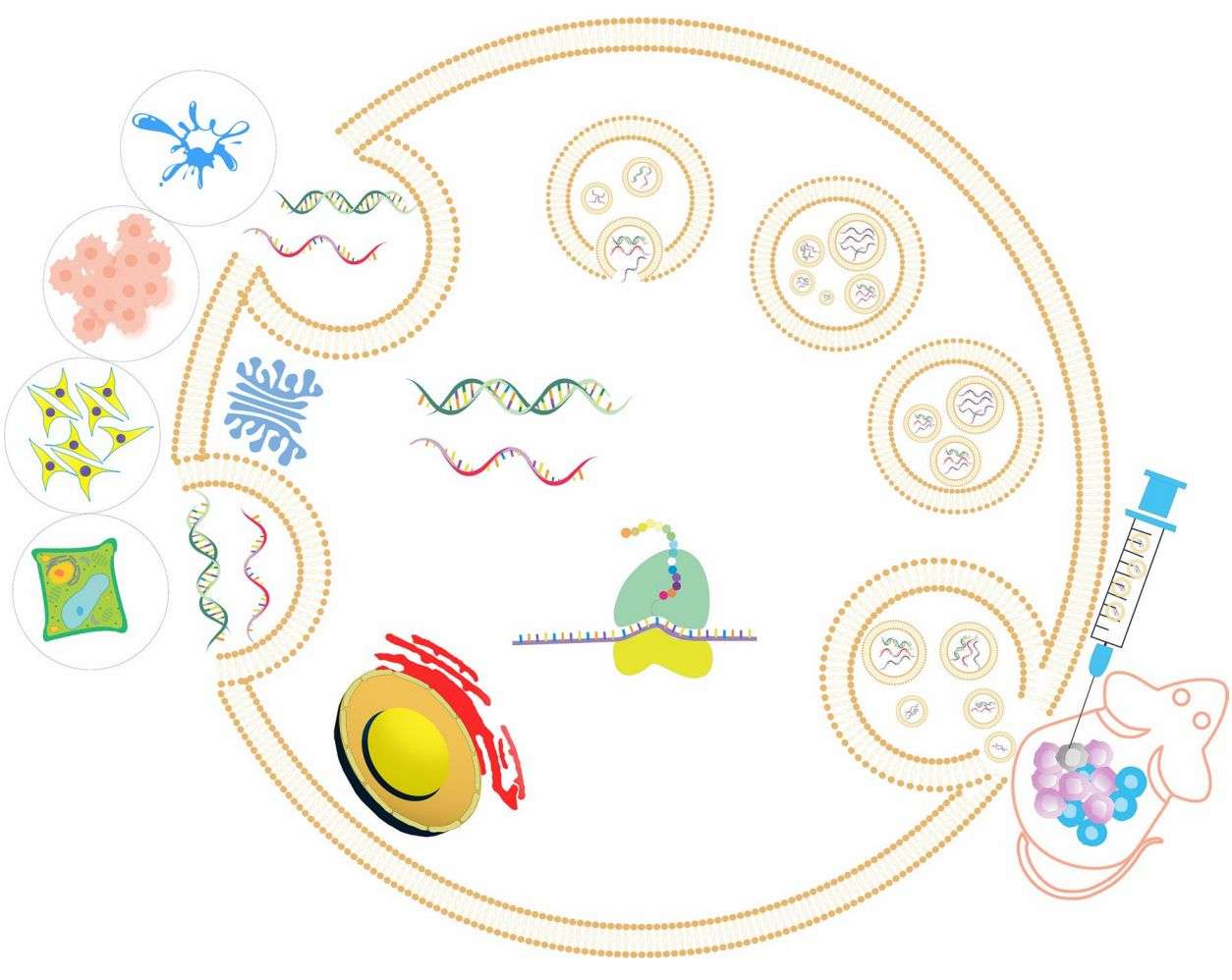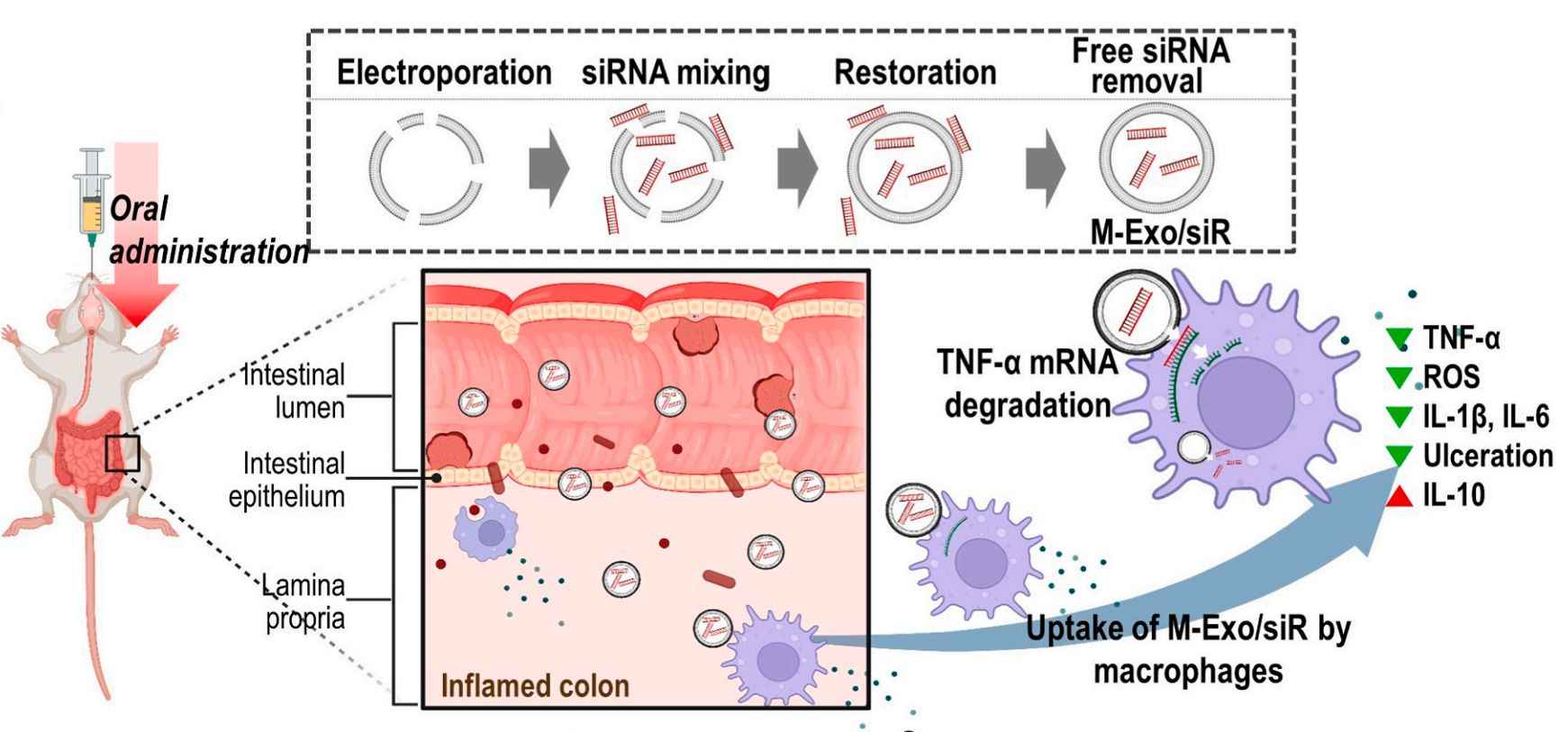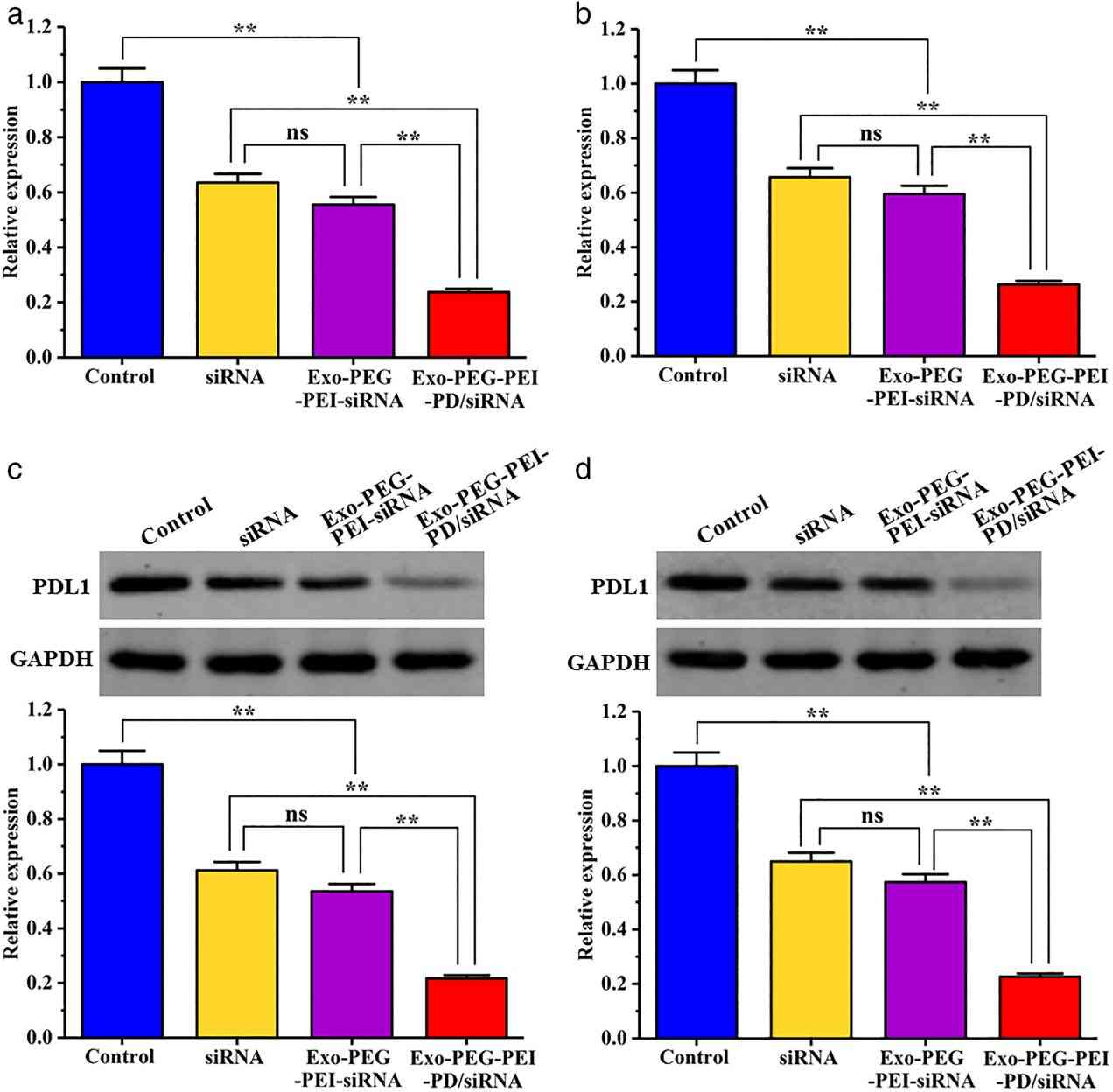Exosomes for siRNA Delivery
Various cells in the human body release exosomes that are involved in intercellular protein and nucleic acid transport. Because of the biological origin, abundance, and ability to deliver various biomolecules between cells, exosomes can be used to exchange RNA molecules and proteins in vivo. In recent years, small interfering RNAs (siRNAs) have emerged as promising alternatives for treating gene-based pathophysiological diseases, but poor bioavailability limits their therapeutic potential. Since exosomes are present in the human endogenous system and are highly tolerated, they are considered promising vectors for the efficient delivery of siRNAs.
 Figure 1. Schematic of exosomes as carriers for RNA delivery. (Amiri A, et al., 2022)
Figure 1. Schematic of exosomes as carriers for RNA delivery. (Amiri A, et al., 2022)
Research advances in siRNAs
siRNAs are double-stranded RNA molecules with 19 to 25 nucleotides that trigger sequence-specific catalytic mRNA knockdown. The use of siRNAs to induce gene silencing has opened up new avenues for drug discovery. In past research, the development of RNA-based therapeutics has been significantly enhanced, and in particular, triggered RNA interference ( RNAi ) has been widely used in biomedicine. RNAi utilizes the mechanism of post-transcriptional sequence-specific gene silencing, whereby double-stranded RNA is processed into siRNAs that are used as part of an RNA-induced silencing complex to selectively cleave the target mRNA. Following the discovery that synthetic siRNAs can be introduced exogenously into cells to activate RNAi, this approach has become a powerful method for selectively suppressing specific genes of interest in different species, showing potential for application in cancer therapy.
Why Deliver siRNA by Exosomes?
The biomedical use of siRNAs is limited by some factors related to the structure of the RNA, such as negative charge (uptake by cells whose surfaces are also negatively charged) and instability in the circulation (non-modified siRNAs have a very short half-life in the bloodstream, mainly due to degradation by nucleases). Another major obstacle is the immunogenicity of the synthesized siRNA or delivery vector, especially in cases where repeated administration is required to treat a disease. These obstacles can be overcome by utilizing natural vectors to deliver exogenous siRNA to human cells. Natural RNA vectors such as exosomes may be an effective delivery strategy. Exosomes are an ideal system for siRNA encapsulation because their structure consists of a hollow aqueous core encapsulated in a phospholipid bilayer. Exosomes are well stabilized in the bloodstream and have natural targeting properties for delivering functional RNA into cells.
Advancements in siRNA Delivery by Exosomes
Oral drug delivery delivers drugs directly to lesions in the small intestine and colon to treat inflammatory bowel disease. However, multiple physical barriers impede the delivery of oral RNA drugs through the gastrointestinal tract. Therefore, researchers have developed a novel oral siRNA delivery system that uses exosomes from milk to encapsulate tumor necrosis factor-alpha (TNF-α) siRNA, thereby protecting the nucleic acid. The research found that milk-derived exosomes (M-Exos) have excellent structural stability, and M-Exos loaded with TNF-α siRNA can effectively inhibit the expression of TNF-α-related inflammatory cytokines. In addition, M-Exos consists of highly bioavailable lipids, and oral administration of M-Exo/siR effectively reaches the colonic tissue, leading to a reduction in the expression of TNF-α in a mouse model of inflammatory bowel disease and successful alleviation of colitis symptoms.
 Figure 2. Schematic of the colitis treatment process through oral administration of M-Exo/siR. (Han G, et al., 2023)
Figure 2. Schematic of the colitis treatment process through oral administration of M-Exo/siR. (Han G, et al., 2023)
As endocytosed nanoparticles are involved in intercellular communication, exosomes can efficiently deliver therapeutic siRNA to target cells. Researchers prepared exosomes targeting siRNA-loaded PD-L1 for lung cancer treatment. The biological cell behavior of the targeted exosome nanoparticles was assessed by cytotoxicity, apoptosis, and cellular uptake capacity. A targeted exosome capable of loading siRNA is constructed with low toxicity, and a high loading rate, and can be used for targeted tumor cell gene therapy. PD-L1 targeted exosome can be used as a highly efficient siRNA delivery vector, which is an efficient and safe tumor-targeted gene therapy nanocarrier.
 Figure 3. PDL1-targeted exosome-loaded siRNA inhibits PDL1 expression. (Lin X, et al., 2022)
Figure 3. PDL1-targeted exosome-loaded siRNA inhibits PDL1 expression. (Lin X, et al., 2022)
Choose Our Exosome Products
Exosomes can efficiently deliver drugs between cells and deliver therapeutic siRNAs to target cells for cancer gene therapy. We provide a comprehensive range of exosomes derived from cancer cell lines to help clients explore the potential applications of exosomes in siRNA delivery for cancer treatment.
| Cat No. | Product Name | Source |
| Exo-CH06 | HQExo™ Exosome-MCF-7 | Exosome derived from human breast cancer, noninvasive cell line (MCF-7 cell line) |
| Exo-CH10 | HQExo™ Exosome-HCT116 | Exosome derived from human colorectal carcinoma cell line (HCT116 cell line) |
| Exo-CH16 | HQExo™ Exosome-COLO1 | Exosome derived from human colon carcinoma (COLO1 cell line) |
| Exo-CH21 | HQExo™ Exosome-A375 | Exosome derived from human malignant melanoma cell line (A375 cell line) |
| Exo-CH22 | HQExo™ Exosome-HCT116 | Exosome derived from human colorectal carcinoma cell line initiated from an adult male (HCT116 cell line) |
| Exo-CH12 | HQExo™ Exosome-MM1 | Exosome derived from human melanoma (MM1 cell line) |
| Exo-CH19 | HQExo™ Exosome-NCI-H975 | Exosome derived from human lung carcinoma (non-small cells) (NCI-H975 cell line) |
| Explore All Exosomes Isolated from Cancer Cell Lines | ||
With the cutting-edge exosome platform, Creative Biostructure can provide customized exosome engineering services, including exosome cargo loading. We are committed to exosome research and provide a one-stop service, including exosome isolation, characterization, functional analysis, and drug carrier design. If you are interested in our services and products, please feel free to contact us. We look forward to working with you.
References
- Amiri A, et al. Exosomes as bio-inspired nanocarriers for RNA delivery: preparation and applications. J Transl Med. 2022. 20(1): 125.
- Han G, et al. Oral TNF-α siRNA delivery via milk-derived exosomes for effective treatment of inflammatory bowel disease. Bioact Mater. 2023. 34: 138-149.
- Lin X, et al. A targeted siRNA-loaded PDL1-exosome and functional evaluation against lung cancer. Thorac Cancer. 2022. 13(11): 1691–1702.
- Shtam TA, et al. Exosomes are natural carriers of exogenous siRNA to human cells in vitro. Cell Commun Signal. 2013. 11: 88.
- Faruqu FN, et al. Preparation of Exosomes for siRNA Delivery to Cancer Cells. J Vis Exp. 2018. (142): 10.3791/58814.
- Kumar L, et al. Exosomes: Natural Carriers for siRNA Delivery. Curr Pharm Des. 2015. 21(31): 4556-4565.